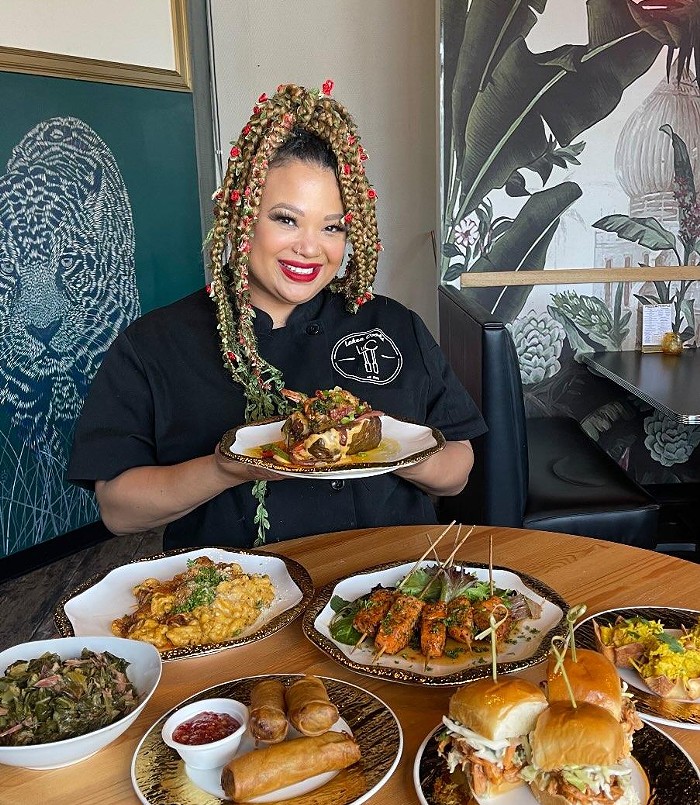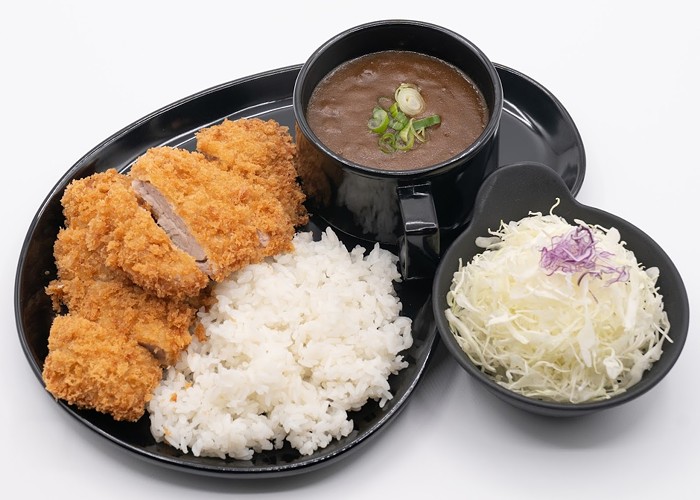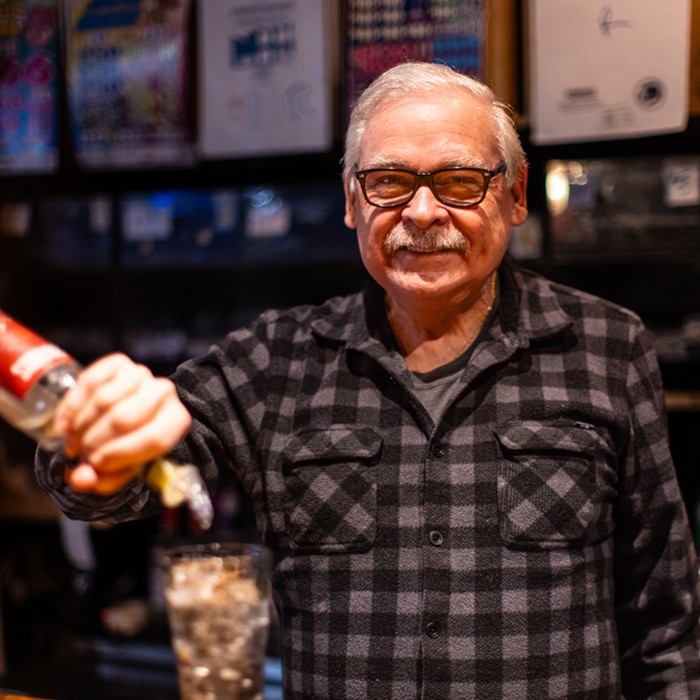
Not long after Tuesday's soul-rattling hail burst, I came across, during my walk to Westlake Station, a very dead Dragonfish Asian Cafe. The restaurant's location was the ground floor of the Paramount Hotel. It was a popular joint with those who wanted to have a good time on a tight budget.
As far as I can tell, no report has been made about its passing. Even the usually thorough commentator of Seattle's dining/drinking landscape, Bethany Clement of the Seattle Times, seems to have missed it. And my attempts to contact Dragonfish's owner and former general manager to extract a story about the nature of its demise have gone nowhere. (There is, however, a story about Dragonfish's owner, Takao Kikuchi, opening a new Asian restaurant in downtown Mountlake Terrace somewhere in the middle months of this year.)
Those who know even a little something about Dragonfish know this one thing about the restaurant/bar: It had a gloriously generous happy hour, which happened twice a day during the weekday (2 p.m. to 6 p.m. and 9 p.m. to close). Indeed, the cheap items on the menu were a drunkard's delight, especially after attending a show at the Paramount or some other venue. Those deep fried strips of bacon, for example, disaggregated the grip of the booze in the belly. (At some point Dragonfish stopped serving that devilish bacon for reasons that, even when carefully explained to me by a waiter, I failed to understand.) All of this remembered joy in the past will not be rejoined with the future that follows this very long and badly managed pandemic. By all indications, the Dragonfish, which apparently tried to make ends meet with the takeout hassle, and, according to gossip gathered from Facebook had menu and spatial renovations in the works, is gone for good.
That said, we can use the demise of Dragonfish to see the kind of Seattle that's likely to emerge from the end of this pandemic.

First, let's be honest: You did not go to Dragonfish for the best of pan-Asian dishes. This was no foodie joint. It did not win or attract that kind of attention. You went there because it was bloody cheap, had a great location, and an atmosphere and quality of food that was reliably pleasing. The takeout model for an enterprise of this kind is a bit of a joke. For instance, ordering food from Ba Bar, which has a superb kitchen, makes more obvious sense than ordering it from Dragonfish, a business that had much of its reason for being grounded in place and in the happiest of Seattle's happy hours. Dragonfish also generated considerable business during its award-winning "ladies night" ("Oh, what a night").
But these are exactly the kinds of places that will remain scarce after all of this is over.
To understand why, the first principle that must be grasped is market crashes do not destroy wealth more than they concentrate it. Crashes are, in this understanding, an inequality accelerant. If gentrification is nothing but this process at a given or constant speed, a crash is like pressing KITT's "turbo boost" button in the Knight Rider TV show.
And so, what's happening in Seattle at this moment is not just a kind of waiting for normal business to resume. No. There are lots of things going on beneath all of the long waiting—the closings, the deliberate inaction and half-measures from federal, state, and local governments.
What did these governments fail to do? They never made free time cheap or totally worth nothing, which is the ideal condition under the present circumstances (the long crash of 2020-2021). Free time is as expensive today as it was before the pandemic hit. And what this means is that those who were making ends meet in 2019 are now simply crushed by those who have access to large amounts of capital—the high price of free time.
These capitalists can afford to wait for a long time without doing anything. They can, to use the words of Courtney Love, "live through this." And so we can expect them to own even more of the city at the end of this year, when, I suspect, the pandemic will be finally under control. See you at the crossroads, Dragonfish.



















